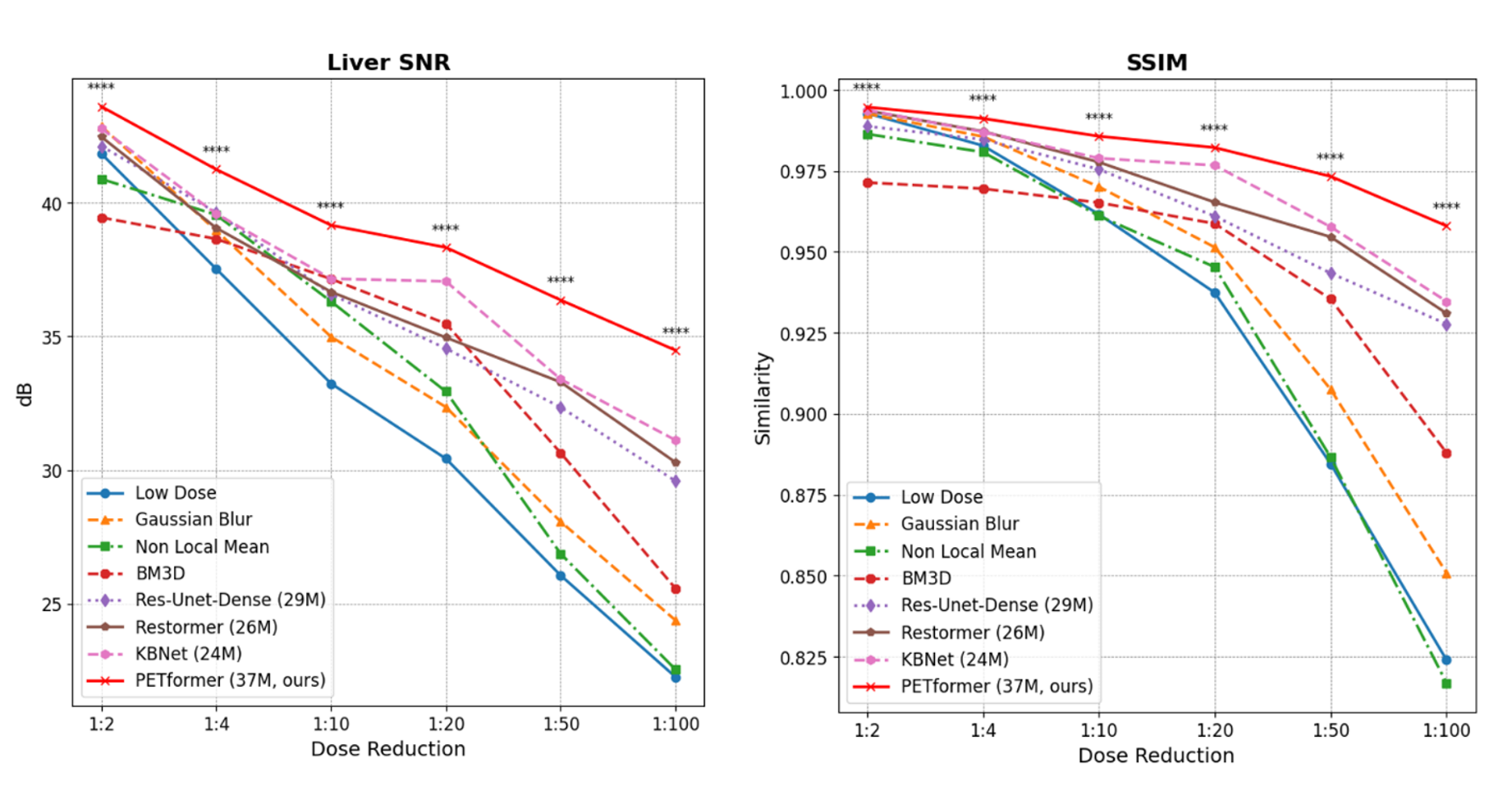Positron Emission Tomography (PET) is essential for non-invasive imaging of metabolic processes in healthcare applications. However, the use of radiolabeled tracers exposes patients to ionizing radiation, raising concerns about carcinogenic potential, and warranting efforts to minimize doses without sacrificing diagnostic quality. In this work, we present a novel neural network architecture, PETformer, designed for denoising ultra-low-dose PET images as low as 2% dose without requiring structural priors such as CT or MRI.
Key Highlights:
- Build on a U-Net backbone, PETformer consists of a series of multi-headed transposed attention (MDTA) blocks, kernel-basis attention (KBA) and channel attention (CA) block.
- Trained and validated on a dataset of 317 patients imaged on a total-body uEXPLORER PET/CT scanner.
- Achieved significant superiority over other established denoising algorithms across different dose-reduction factors.
For more details, please refer to our paper (to be published).
PETformer network architecture:

For more results, please refer to our paper (to be published).
Datasets and model weights is not available at this time.
To use the PETformer model:
from petformer import PETformer
model = PETformer(...)
model.load_state_dict(torch.load('pretrained_weights.pt'))
model.eval()
# image tensor
input_image = torch.randn(...) # Replace with your image
denoised_image = model(input_image)If you found this work useful or used it in your research, please consider citing our paper: (to be published)
For questions or issues, please reach out to yusheng.li@united-imaging.com.
